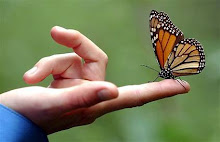
1. Art, and what constitutes true art, is one of the earliest questions raised in THE GIRL WHO STOPPED SWIMMING. Thalia clearly dismisses Laurel's quilts as handicraft, not art. What, in your opinion, is "true art?" Is there such a thing?
2. Laurel's mother brings canned goods and toys to DeLop, but she has severed all emotional connections. Does this disconnect compromise her good works? Do you think a person's motives and feelings make a difference to how valuable a "charitable act" is? Why or Why not?
3. On p. 65, Thalia explains "Mother is Cowslip." Do you know anyone who is prone to "cowslipping?" Can you think of situations where you yourself have cowslipped?
4. The tension between what is on the surface and what lies beneath is dominant in this book. Can you think of some examples of this dichotomy in the text? What statement do you think the author is trying to make by highlighting these dichotomies?
5. The title clearly refers to the discovery of Molly Dufresne in the first chapter of the book. But is there another interpretation you could offer?
6. Thalia consistently needles, pushes, or blasts Laurel out of her comfort zone, usually for what she considers to be Laurel's own good. Do you have a "Thalia" in your life?
7. One particular bone of contention for Laurel and Thalia is Shelby-Thalia clearly believes Laurel is doing her great harm by overprotecting her and keeping her "safe" at home. How do you feel about Laurel's relationship with her daughter-is it as close as Laurel believes, or as false as Thalia insists? Did your view change throughout the book as events unfolded?
8. Laurel and Thalia do not understand each other' marriages; both would say their marriage is better. Thalia's marriage is certainly untraditional, but it seems to work for her. Do you think Thalia's relationship can be considered a good marriage? Does Laurel have a good marriage at the beginning of the book? In what ways? Has there been significant change in that relationship by the end of the book?
9. Laurel makes decisions using intuition and emotion, David through logic and reason. What does Thalia use to make decisions? Is she closer to David or Laurel, or does she have a system of her own?
10. Laurel is her mother's quietly acknowledged favorite, and Thalia seems to belong to Daddy. Is this a "normal" or healthy family dynamic? How does this divided favoritism shape the sisters? Do you think this causes "sibling rivalry?" Have you seen this dynamic at work in your own family, and do you think it affected the way you interact with your parents or siblings? With your own children?
11. Jackson has said in interviews, "At its heart, this is a book about poverty." Do you agree? If not, what did you think the book was about? Do you think she means only literal poverty? What other kinds of poverty did you notice in the book?
12. Thalia provides a logical explanation for all of Laurel's ghosts, assuming her visions have more to do with psychology and the subconscious than the supernatural.. Do you think there are real ghosts in this book? Do you believe in ghosts, or have there been times in your life when you have been convinced of their presence?




1 comment:
I found your site while looking for information on The Girl Who Stopped Swimming. I facilitate a book group at the Abingdon Branch of Harford County Public Library in Maryland (where I work). My group enjoyed the book and it proved to have a lot in it that provoked discussion. I thought your questions were very good & used or adapted some of them along with my own. I have also blogged the book on the library website's Readers Place, this is the link if you are interested. I included the link to your blog. http://www.hcplonline.info/weblog/readers/blogabook.html
Post a Comment